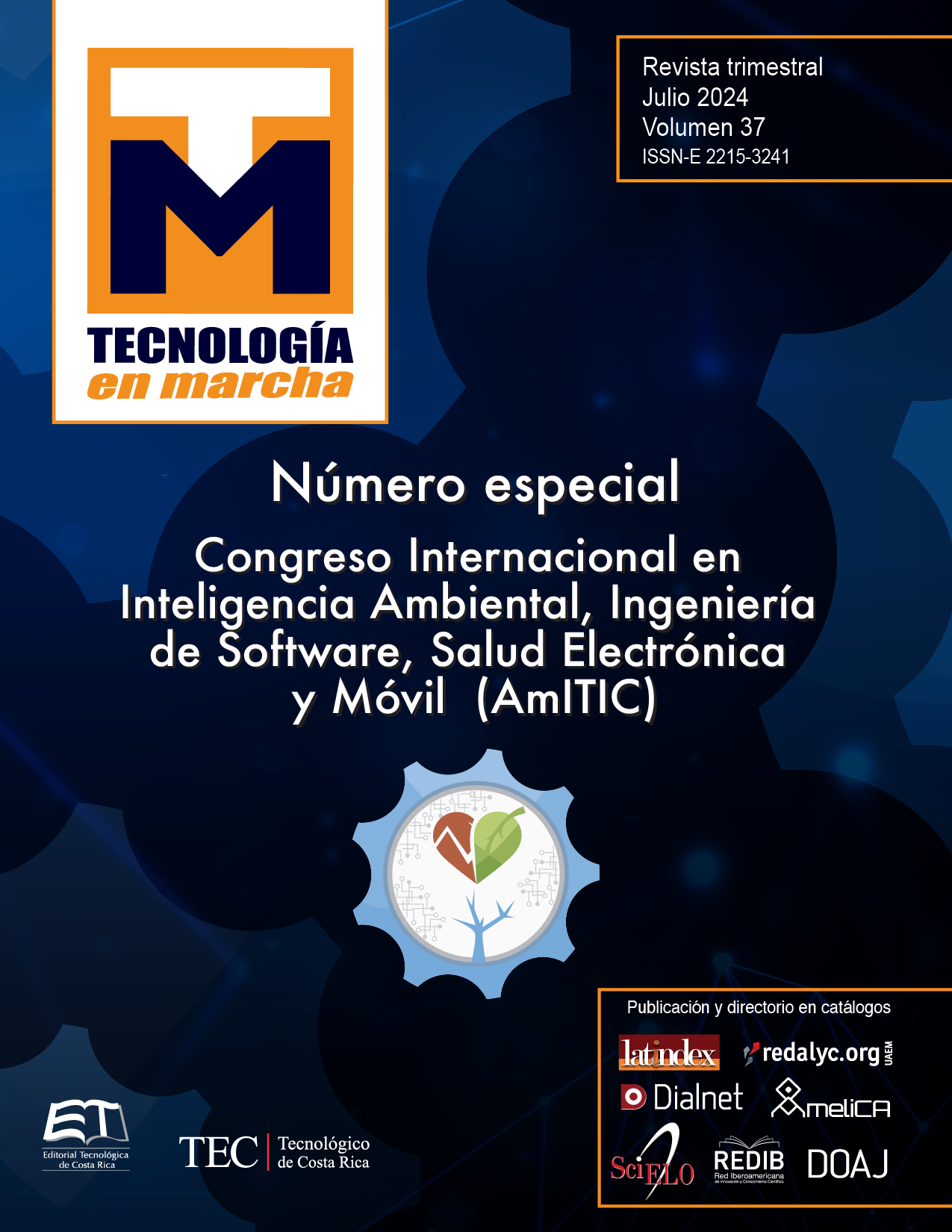Development of a videogame that introduces Don Quixote de la Mancha in its narrative
Main Article Content
Abstract
It is undeniable that literature has been one of the most important artistic expressions, having great cultural relevance and social impact, but nevertheless it does not reach all audiences largely due to lack of interest, then it seeks to promote and / or encourage literature and what better reference than Don Quixote de la Mancha by Miguel de Cervantes Saavedra. For this, the narrative of the book will be introduced in a medium with more reach and impact on young people, such as video games, which have great attention and disposition of the young public, in video games you have to know how to read to achieve an adequate machine-player interaction, but not only reading is enough since in many video games to reach an understanding of the topics presented and / or advance in the progress of the same, a certain abstraction is needed, having that same ability in literature. Exercising in the user thoughts and / or reflections that allow an advance and understanding of the issues and not just a mechanical exercise. The relationship between literature and video games is in the ability of both to tell and transmit stories with a real impact, with the aim of adapting stories from books into video games not only to demonstrate the impact of video games but also to expose the stories of literature also giving an incentive to the world of literature. Thus having this relationship a purpose beyond that of entertainment, being an educational and learning purpose.
Article Details

This work is licensed under a Creative Commons Attribution-NonCommercial-NoDerivatives 4.0 International License.
Los autores conservan los derechos de autor y ceden a la revista el derecho de la primera publicación y pueda editarlo, reproducirlo, distribuirlo, exhibirlo y comunicarlo en el país y en el extranjero mediante medios impresos y electrónicos. Asimismo, asumen el compromiso sobre cualquier litigio o reclamación relacionada con derechos de propiedad intelectual, exonerando de responsabilidad a la Editorial Tecnológica de Costa Rica. Además, se establece que los autores pueden realizar otros acuerdos contractuales independientes y adicionales para la distribución no exclusiva de la versión del artículo publicado en esta revista (p. ej., incluirlo en un repositorio institucional o publicarlo en un libro) siempre que indiquen claramente que el trabajo se publicó por primera vez en esta revista.
References
Pereira, D. (2022). Análisis de intervenciones educativas con videojuegos en educación secundaria: una revisión sistemática. https://doi.org/10.35699/1983
De Cervantes, M. (2020). Don Quijote de la Mancha (D. Angeles, Ed.; Angeles, D;). Independently Published.
Núñez-Pacheco, R., Castillo-Torres, D., & Luis Navarrete-Cardero, ; (2019). Videojuegos y literatura: Estudio de tres casos de intertextos hispanoamericanos 1. Arte, Indiv. Soc, 31(3), 527–542. https://doi.org/10.5209/aris.60884
Núñez-Barriopedro, E., Sanz-Gomez, Y., & Ravina-Ripoll, R. (2020). Los videojuegos en la educación: Beneficios y perjuicios. Revista Electrónica Educare, 24(2), 1–18. https://doi.org/10.15359/ree.24-2.12
Redondo, C. I. (2015). Retos del desarrollo de videojuegos en España. https://doi.org/10.6035/2174-0992.2015.9
García, J. G., Manuel, J., & Calleros, G. (2021). Videojuegos en educación especial : niños con TDAH Video games in special education : children with ADHD. Revista Digital de AIPO, 2(1), 48–59.
Wolf, M. J. P., & Perron, B. (2005). Introducción a la teoría del videojuego. Formats: Revista de Comunicació Audiovisual. https://raco.cat/index.php/Formats/article/view/257329
Plataforma de desarrollo en tiempo real de Unity | Motor de 3D, 2D, VR y AR. (n.d.). Retrieved November 22, 2023, from https://unity.com/es
Piskel - Free online sprite editor. (n.d.). Retrieved November 22, 2023, from https://www.piskelapp.com/
Abraham, G., Urrutia, M., Nava López, C. E., Felipe Fernández Martínez, L., Aarón, M., & Corral, R. (2010). Procesos de desarrollo para videojuegos. CULCyT: Cultura Científica y Tecnológica, ISSN-e 2007-0411, Vol. 7, No. 36-37, 2010, Págs. 25-39, 7(36), 25–39. https://dialnet.unirioja.es/servlet/articulo?codigo=3238114&info=resumen&idioma=SPA
López-Mera, D. D. (2022). Árcade: Metodología para el desarrollo de videojuegos en cursos de ingenierías. Revista de Investigación En Tecnologías de La Información, 10(20), 51–61. https://doi.org/10.36825/riti.10.20.005
Valderrama Riveros, Ó., & Ramírez Casallas, J. (2021). EL USO DE PROCESSING EN EL DESARROLLO DE VIDEOJUEGOS PARA FORTALECER LAS COMPETENCIAS EN INGENIEROS DE SISTEMAS. Encuentro Internacional de Educación en Ingeniería ACOFI 2021.
Oltra, A. G. (2020). LA REVOLUCIÓN DE LOS PÍXELES. ARTE Y VIDEOJUEGOS EN UN MUNDO DIGITAL. Revista Eviterna, 7, 88–102. https://doi.org/10.24310/eviternare.v0i7.8382
Mendez, M., & Boude, O. (2021). Uso de los videojuegos en básica primaria: una revisión sistemática. https://doi.org/10.48082/espacios-a21v42n01p06
Chanchi-Golondrino, G. E., Gomez-Álvarez, M. C., & Sierra-Martinez, L. M. (2022). Directrices para el diseño y la construcción de videojuegos serios educativos. Revista Colombiana de Educación, 1(84), 1–22. https://doi.org/10.17227/rce.num84-12759
Ranzolin, A. (2020). Videojuegos para el desarrollo del pensamiento crítico y el diálogo. EU-Topías. Revista de Interculturalidad, Comunicación y Estudios Europeos, 19, 125. https://doi.org/10.7203/eutopias.19.17878
Morales Corral, E. (2010). El uso de los videojuegos como recurso de aprendizaje en educación primaria y Teoría de la Comunicación. Diálogos de La Comunicación, ISSN 1813-9248, No. 80, 2010, 80, 7. https://dialnet.unirioja.es/servlet/articulo?codigo=3719704&info=resumen&idioma=ENG
Granados Oliveros, T., & Malagón Santamaría, M. (2009). Propuesta de mejora de un software educativo desde su uso pedagógico, para el cultivo de la ciencia en preescolar soportado en la revisión teórica de Piaget y Gardner. https://repository.unab.edu.co/handle/20.500.12749/941#.ZFLCdBN4ZTw.mendeley
Carvalho Gomes José, Gilvan Rodrigues Maia, B. P. O. A. de O. da R. F. J. W. F. da S. F. A. (2020). A Framework for Metroidvania Games. Proceedings of SBGames. https://www.researchgate.net/profile/Jose-Maia-4/publication/346540910_A_Framework_for_Metroidvania_Games/links/5fc67deda6fdccfea3f0770d/A-Framework-for-Metroidvania-Games.pdf

